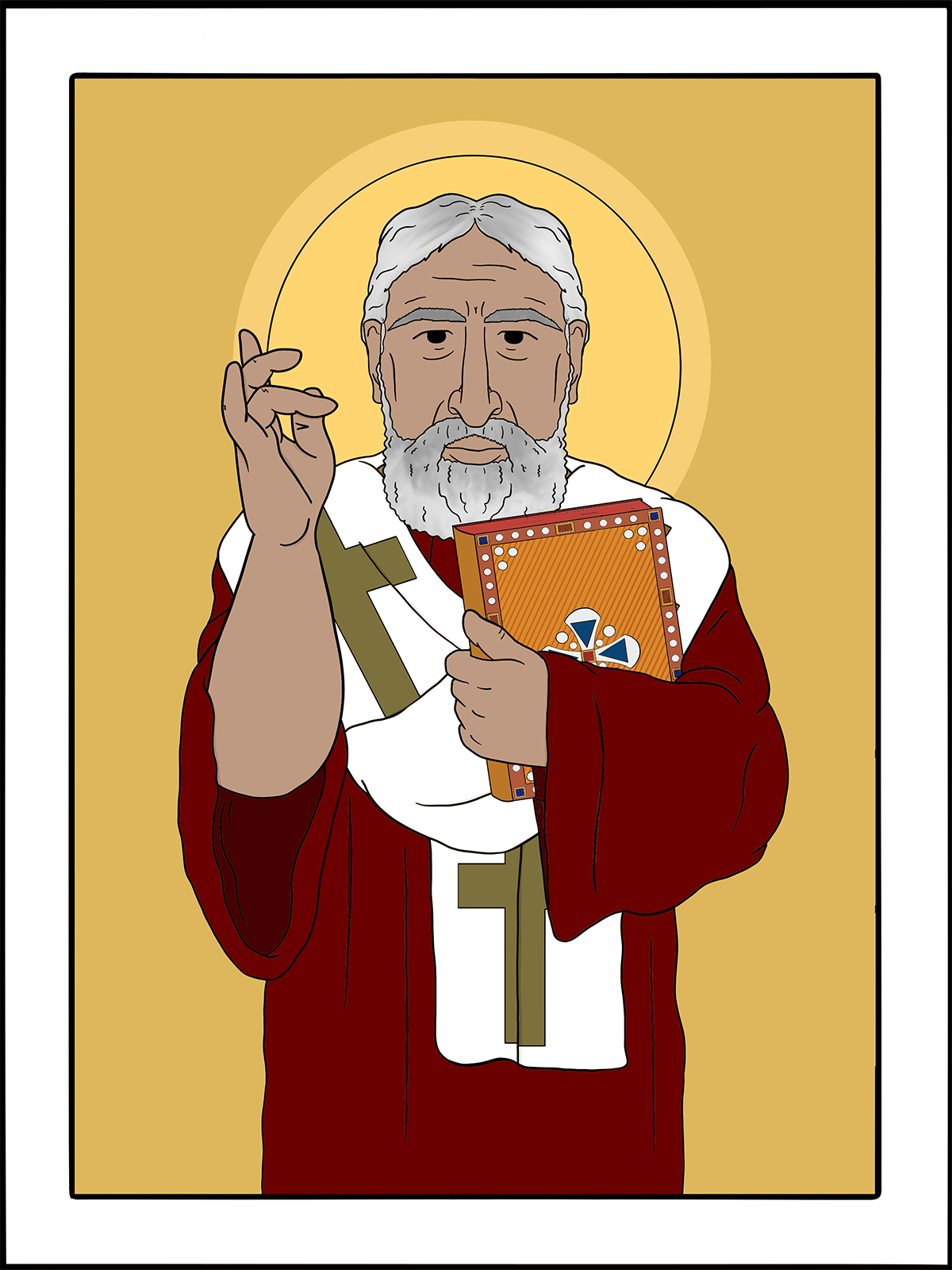
November 10
Leo of Rome
Bishop, 461
art by Rev. Kirsten Kohr of Geneva, OhioO Lord our God, grant that your church, following the teaching of your servant Leo of Rome, may hold fast the great mystery of our redemption and adore the one Christ, true God and true Man, neither divided from our human nature nor separate from your divine Being; through the same Jesus Christ our Lord, who lives and reigns with you and the Holy Spirit, one God, now and for ever. Amen.
When Leo was born, around the year 400, the Western Roman Empire was almost in shambles. Weakened by barbarian invasions and by a totally inefficient economic and political system, the structure that had been carefully built by Augustus had become a chaos of internal warfare, subversion, and corruption.
The social and political situation notwithstanding, Leo received a good education, and was ordained as a deacon, with the responsibility of looking after church possessions, managing the distribution of food, and generally administering the finances. He won considerable respect for his abilities, and a contemporary of his, Cassian, described him as “the ornament of the Roman Church and the divine ministry.”
In 440, Leo was unanimously elected Pope, despite the fact that he was absent at the time on a mission in Gaul. His ability as a preacher shows clearly in the 96 sermons still extant, in which he expounds doctrine, encourages almsgiving, and refutes various heresies.
In Gaul, Africa, and Spain, Leo’s strong hand was felt, as he issued orders to limit the powers of one over-presumptuous bishop, confirmed the rights of another bishop over his vicars, and selected candidates for holy orders. Leo’s letter to the Council of Chalcedon in 451 dealt so effectively with the doctrine of the human and divine natures of the One Person of Christ that the assembled bishops declared, “Peter has spoken by Leo,” and affirmed his definition as orthodox teaching.
With similar strength of spirit and wisdom, Leo negotiated with Attila when the Huns were about to sack Rome. He persuaded them to withdraw from Italy and to accept an annual tribute. Three years later, Genseric led the Vandals against Rome. Again Leo negotiated. Unable to prevent pillaging by the barbarians, he did dissuade them from burning the city and slaughtering its inhabitants. He worked, thereafter, to repair the damage, to replace the holy vessels in the desecrated churches, and to restore the morale of the Roman people. Leo died in Rome in 461.
Excerpted directly from “Lesser Feasts and Fasts 2022,” p. 502-503.

